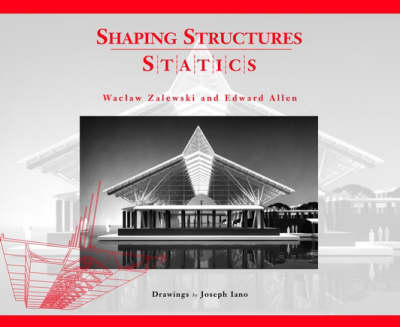Simplified Design Guides
1 total work
In Shaping Structures, an engineer and an architect, both longtime teachers of structures at major American universities, collaborate to present an inspired synthesis of the creative and the technical, explicating both the principles of statics and their application to the fascinating task of finding good form for structures.
This richly visual volume features: An easily understood development of the fundamentals of statics Step-by-step demonstrations, using both numerical and graphical techniques, of simple yet powerful methods for finding form and forces for arched structures, suspended structures, cable-stayed structures, and highly efficient trusses 120 photographs and more than 300 crisp drawings that illustrate and explain the magnificent structural triumphs of master architects and engineers -including Gustave Eiffel's famous tower, Robert Maillart's soaring bridges, Pier Luigi Nervi's landmark Turin Exhibition Hall, and many others Calculations in both SI metric and conventional units throughout the book Requiring only the most rudimentary mathematical background yet accurate and fully functional, Shaping Structures provides an inviting point of entry to the study of structural design for engineering and architecture students -proving that the science of statics doesn't have to be lifeless, simplistic, or dull.
This richly visual volume features: An easily understood development of the fundamentals of statics Step-by-step demonstrations, using both numerical and graphical techniques, of simple yet powerful methods for finding form and forces for arched structures, suspended structures, cable-stayed structures, and highly efficient trusses 120 photographs and more than 300 crisp drawings that illustrate and explain the magnificent structural triumphs of master architects and engineers -including Gustave Eiffel's famous tower, Robert Maillart's soaring bridges, Pier Luigi Nervi's landmark Turin Exhibition Hall, and many others Calculations in both SI metric and conventional units throughout the book Requiring only the most rudimentary mathematical background yet accurate and fully functional, Shaping Structures provides an inviting point of entry to the study of structural design for engineering and architecture students -proving that the science of statics doesn't have to be lifeless, simplistic, or dull.
